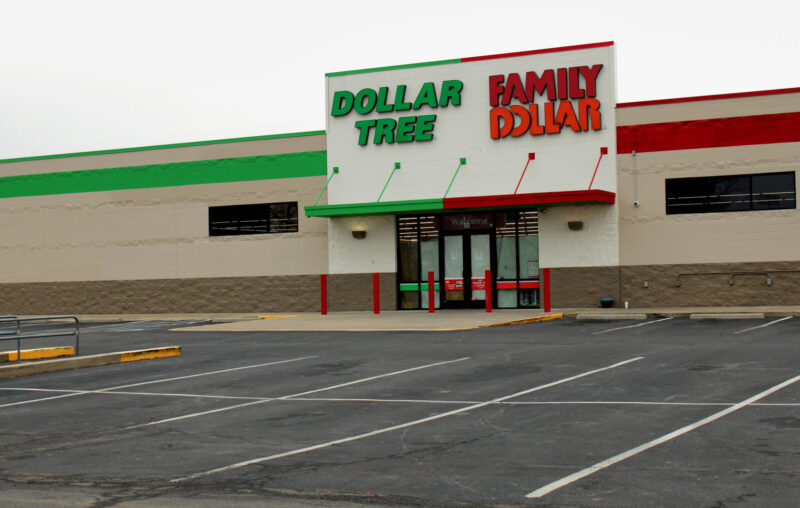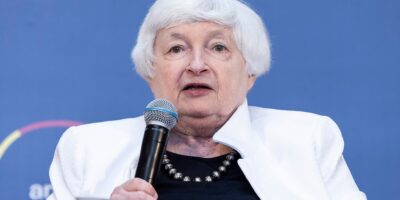Tucker Carlson’s Dollar Store Takedown

Glenn Greenwald, who has become a representative for the populist right, recently featured Tucker Carlson on the Rumble show System Update. And although several hot-button issues were discussed, one of Carlson’s rants fully exposed his distaste for bargain shopping and his desire to shape society according to his elitism.
Carlson begins by conveying that libertarian economics is self-serving, and positions capitalism to be a problem for progress. History, however, has proven that it is precisely when people leverage their own property and skills to engage in trade that societal welfare improves. It is capitalism that generates economic growth, and economic growth is good for society.
Yet, Carlson downplays the role of producers and individuals, showing an apparent interest in greater state interference and control. He claims that an economic system should be assessed according to results, and he uses dollar stores as an example of what he views to be a negative result. Markets, however, are dynamic and elastic — they cannot be determined and the state should not aim to shape “appropriate” (or Carlson-approved) outcomes.
According to Carlson, dollar stores are ugly, and “anything that is ugly is evil.” But Dollar General and Dollar Tree Inc. weren’t founded in the 1950s to make America “grotesque.” For generations, these stores have been operated and owned by individuals who provide products and services to interested consumers.
In fact, near the area where I grew up, a new dollar store just opened and it’s literally the talk of the town — in a good way. The residents are thrilled with the new store since fresh produce along with other everyday essentials are now a short ride away. And, to add an additional bonus to the local community, the new store, which is a DG Market shop, resides in a previously vacant building and has generated new job opportunities and supply chain networks. This is a sign of progress, not degradation.
Nevertheless, Carlson finds the dollar store to be “a sort of symbol…for your total lack of control over where you live, and over the imposition of aggressively in-your-face ugly structures that send one message to you, namely that, ‘You mean nothing. You are a consumer, not a human being or a citizen.'”
But being a consumer with autonomy, opportunities, and options is one of the greatest privileges of American citizenship. I love that I can find nearly anything I search for on Amazon, Walmart, Etsy, Wayfair, Costco, Target, eBay, and a host of other sites. And I’m excited for my search experience to transform and improve as marketers learn and leverage the capabilities of artificial intelligence.
Nowhere in the world are needs and wants better met than in the United States. And the same is true when it comes to options for entrepreneurs seeking out market opportunities. If you want to try and sell a chicken-shaped handbag or bacon-strip bandages on Amazon, go for it!
Perhaps Carlson knows this, and that is why he isn’t bashing big business; Amazon is, after all, an American favorite. It is not clear, though, why dollar stores, which typically run on razor-thin profit margins, have become his whipping boy. The only thing that is obvious is that Carlson doesn’t like the look of them.
Sure, there are some pretty dirty and decrepit dollar stores out there, but let’s not throw out the baby with the bathwater. If your town is going downhill (which it is, according to Carlson if there is a dollar store in it), then it might be time to be your own force for change. What are your options for relocation? How are you contributing to your community’s economic growth? What are areas where you can serve or volunteer for your municipality? What are the channels you can leverage for voicing concerns? Or, more importantly, how are you evaluating the role the government has played in shaping the economic system that Carlson assumes you are trapped in?
Oddly enough, Carlson doesn’t want you to think too hard about that. He claims that discussing economic systems are “boring conversations.” Maybe Carlson would find them less boring if he knew more about economics.
Throughout his rant he flip-flops by stating that our economic system could be called “a whole host of different things” but then goes on to say he “doesn’t know what to call our economic system.” The label he settles on is “market capitalism,” but such a label is largely incorrect.
America has a mixed economic system, where our economy integrates some market-based principles along with government control and interference. Capitalism, in its truest sense, is far from what we currently experience, and the continuous mashing up of politics with economics is a frustrating matter.
Fortunately, though, the aspects of capitalism that we have been able to harness have led to each generation’s achieving greater opportunities than before when it comes to resource allocation and value creation. But if Carlson doesn’t want to talk about economic systems, then perhaps he should start by simply asking some common sense questions, like “Why are there so many dollar stores?” There is a simple answer.
Businesses open where they can serve interested individuals; there must be proof of the potential for purchases and profitability. Moreover, which businesses and stores can open is determined by state and local governments — some of which are very welcoming and proud to host bargain-based retailers. In fact, Scottsville, Kentucky recently celebrated its official designation as the “Birthplace of Dollar General,” and this recognition was not only to commemorate DG’s founding, but also its positive contributions to the community.
Dollar General’s stated mission is “serving others every day by providing access to affordable products and services for its customers, career opportunities for its employees, and literacy and education support for its hometown communities.” And through its establishment of the Laura Goad Turner Foundation, Dollar General has “gifted grants to 77 organizations, endowed scholarships with Western Kentucky University for thousands of first-generation college attendees, and gifted over $34 million back to the community.”
Carlson is entitled to his view of dollar stores as being ugly, but for individuals and families who appreciate the offerings, services, and availability of a discount retailer in their neighborhood, it is surely a beautiful thing. And although dollar stores can sometimes be a sign of limited economic progress in certain areas, they are a step in the right direction since the best way to help those with lesser means is to provide them with more options.
Dollar stores don’t create low-income households, they serve them. No one should ever be ashamed when shopping at a dollar store, and no dollar store should ever be shunned for providing products and services to interested customers.
Economic systems should be studied and assessed, and individuals should enable and empower themselves to change the situations they are in. A good place to start would be to stop taking cues from Tucker Carlson. Shop wherever your needs are best met and do your best to help the economy around you thrive. And if Carlson wants to voice his opinion about how “ugly” and “evil” that is, then he can, and we can choose to disagree. That is why America is so beautiful – and so are some dollar stores.










